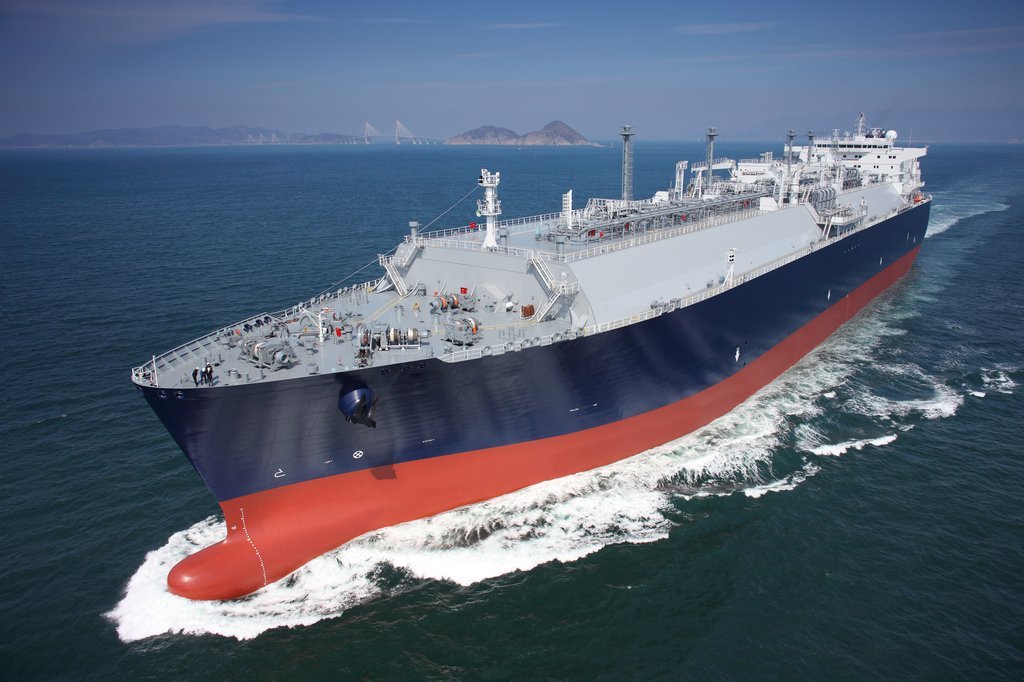Fueled by the recovery of global trade volume and increasing demand for advanced eco-friendly vessels, South Korea’s main shipbuilders have seen business boom recently, with benefits spilling over to related sectors such as steel.
But Samsung Heavy Industries, the shipbuilder under the nation’s top conglomerate, Samsung Group, continues to reel under troubled finances and weak recovery scenarios. Some critical hits to the company’s accounting books, according to market observers, stem from its heavy reliance on the once-promising offshore plant business and the excess drillship inventory caused by order cancellations in the wake of the COVID-19 pandemic.
On May 4, the company unveiled its quarterly earnings for the January-March period, reporting an operating loss of 506.8 billion won ($455.95 million).
In an effort to turn things around, it also presented an accompanying plan to achieve a capital reduction by cutting the face value of its shares by 80 percent -- from the current 5,000 won to 1,000 won. The company will also seek to raise an additional 1 trillion won by selling new shares.
These fiscal decisions are to be confirmed at an extraordinary shareholders meeting slated for June 22, officials said.
Despite the action plan, however, the company’s stock price dipped by double digits, in terms of percentages, to 5,620 won from a peak 7,780 won, though it later recovered to the 6,000 won range in late May.
The sharp fall was all the more conspicuous as market champion Hyundai Heavy saw its stock value remain strong, hitting a high for the year of 79,300 won during the second quarter.
The market’s cynical response toward Samsung Heavy reflected widespread concerns that the capital readjustment might do no more than temporarily alleviate the company’s troubles.
A capital reduction without refunds, offering no compensation to shareholders, is usually taken as a signal of capital impairment risk, leading market observers to reserve purchases.
Last week, KB Securities lowered the target stock price for Samsung Heavy to 5,000 won from 6,500 won.
“As can be seen in the operating loss figure, the company has been prolonging deficit orders throughout the quarter,” the brokerage said in a report.
“Given that the 2 trillion won worth of offshore plant orders in Nigeria will likely be postponed to year-end, the company’s revenues will continue to falter for a while.”
For Samsung Heavy, which has a relatively high proportion of offshore plant orders in its business portfolio compared with its rivals, the globally decreasing volume of such orders is a clear disadvantage.
It also lost out to Korea Shipbuilding & Offshore Engineering and Daewoo Shipbuilding & Marine Engineering in a number of landmark orders earlier this year. One of the thwarted deals was a $758 million order from Brazil’s state-owned Petrobras to construct a floating crude oil production, storage and loading facility.
Apparently conforming to market reality, the company recently lowered its offshore plant portfolio. Raising its order target for this year to $9.1 billion from $7.8 billion, the company cut the amount allocated to offshore plants to $2 billion from $3.2 billion.
Another challenge for the Samsung shipbuilder is the reduction of its drillship inventory amid the prolonged pandemic and consequent order cancellations.
Meanwhile, the shipbuilder said Monday that it had won an order worth 417 billion won to construct two liquefied natural gas carriers for a shipper in the Oceania region, aiming for delivery by July 2024.
The upcoming models will be noted for a number of eco-friendly technologies, such as the air lubrication system Saver Air, according to officials.
Upon this latest order, the company has achieved $5.4 billion in orders so far this year, securing 59 percent of its yearly order target total.
By Bae Hyun-jung (
tellme@heraldcorp.com)








![[Today’s K-pop] Blackpink’s Jennie, Lisa invited to Coachella as solo acts](http://res.heraldm.com/phpwas/restmb_idxmake.php?idx=644&simg=/content/image/2024/11/21/20241121050099_0.jpg)